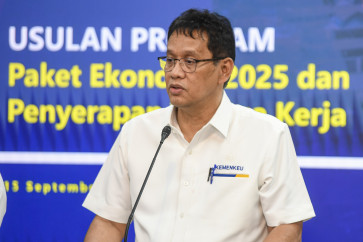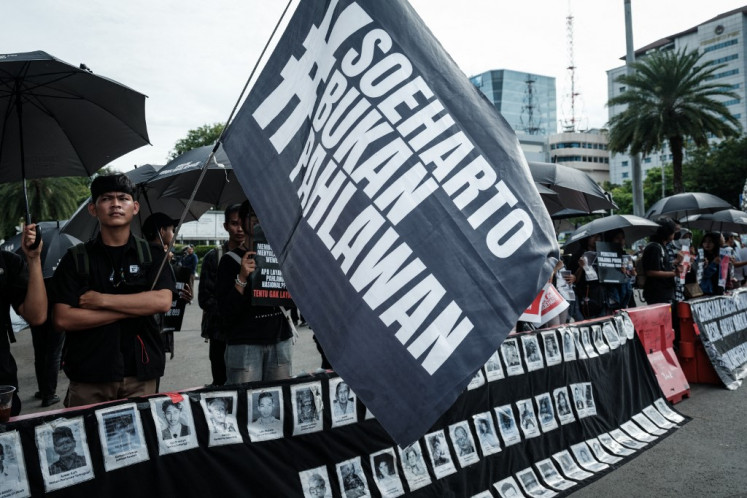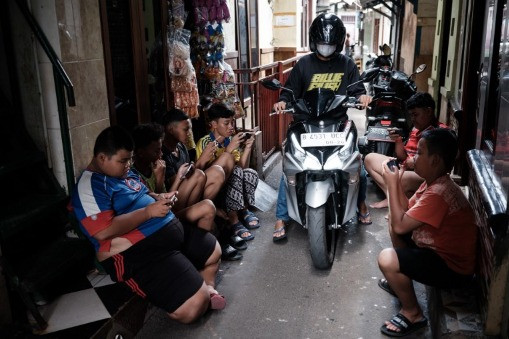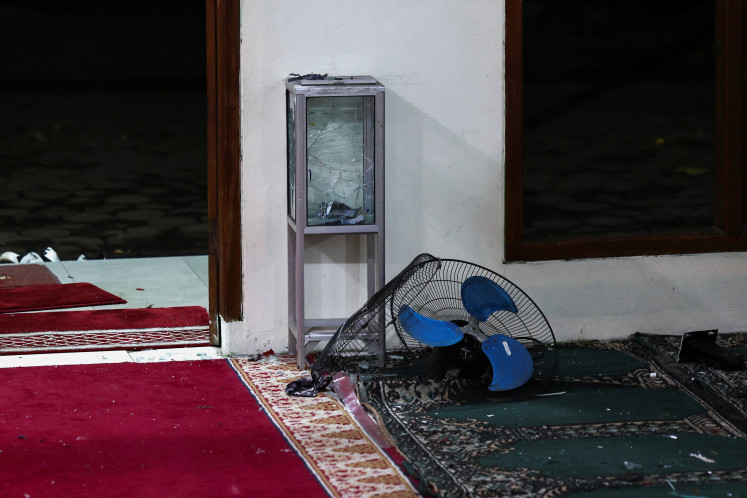Popular Reads
Top Results
Can't find what you're looking for?
View all search resultsPopular Reads
Top Results
Can't find what you're looking for?
View all search resultsInsight: Papua and the need to revisit nationalism
Recent protests in Papua as detailed in the front page of The Jakarta Post on Aug
Change text size
Gift Premium Articles
to Anyone
R
ecent protests in Papua as detailed in the front page of The Jakarta Post on Aug. 20 and/ 21 should encourage us to revisit the prevailing concept of nationalism.
What exactly is its nature? To tell you the truth, the concept is a blur to me. But just as a starting point, the recent Papua protests, triggered by racial abuse against Papuan students in Surabaya, East Java, reminds me of my father’s decades-old message: “Katuleh phat teumpat Aceh dalam perjuangan kemerdekaan Indonesia. Mangat bandum thee Indonesia kon ji peudong dek saboh kaum mantong.” (Write down Aceh’s place in the Indonesian independence struggle. Let it be public knowledge that Indonesia was not established by one group of people only).
My late father was one of the independent fighters in Aceh during the 1945-1949 Indonesian Revolution.
Today, it seems to me that his “instruction” reflects an idea of “egalitarian nationalism”. No one can claim to have contributed the most to the birth of Indonesia. At this juncture, I think we get the point of not only reordering the concept of nationalism but also finding a viable and fresh view of the place of Papuans in Indonesia today.
To put this in perspective, we must firmly state that Indonesia is a “collective creation”. Why? Because soon after our proclamation of independence on Aug. 17, 1945, numerous peripheral regions greeted the birth of this new nation. In Aceh, the ulema read the Oct. 15, 1945, Makloemat Oelama (Ulema Declaration) to state their steadfast support for the proclamation.
In his speech in the Banda Aceh Grand Mosque, prominent ulema Teungku Muhammad Daud Beureu’eh declared the people of Aceh who had died in defense of Indonesian independence as martyrs. This was followed by — besides the establishment of the People’s Security Army (TKR) led by Col. Sjamaun Gaharu — several youth independence fighter groups.
A bit earlier in West Sumatra, Muhammad Sjafi’e of the Kayu Tanam Education Institute read the West Sumatran version of the proclamation on Aug. 29, 1945, and declared total support for the Sukarno-Hatta independence proclamation. In Gorontalo, a local fighter named Nani Wartabone went a step ahead of Sukarno-Hatta as she had proclaimed Indonesia’s independence shortly after the Dutch left Indonesia in 1942.
Despite the threat of the Australian army, two members of the Bugis aristocracy, Andi Djemma and Andi Mappadjuki, bravely opted to align themselves with the Republic of Indonesia. This alignment remained unchanged, although there had been an agreement between Dutch leader Van Mook and Indonesian prime minister Sjahrir on the principles of what Anak Agung Gde Agung called “the March 27, 1946, Concept”.
Under these principles, the Dutch recognized the sovereignty of the new republic, consisting only of Java-Madura and Sumatra, without mentioning South Sulawesi.
These facts vividly show that Indonesia was and is a collective creation. It automatically rejects a hierarchical point of view upon a nationalism concept. As a consequence, the structure of center-periphery relations in the socioeconomic and political realms should not only be constructed on the horizontal or egalitarian basis. More importantly, it should be marked by a dialogic structure where the regions are treated as equal partners of the center. The reordering concept of nationalism could then be conceived from this framework.
By sticking to this idea, the recent Papuan demonstrations are logically a product of the conspicuous absence of this enlightened model of nationalism. The abuse of both security officers and some youth organizations against the Papuan students in the Surabaya and Malang incidents reflects the remnants of old-fashioned nationalism. That is, the ones modeled after early European state formation experiences — the states they created structurally needed an aggrandized and centrally concentrated power.
Cloaked with the idea of efficiency in managing a modern state, the model not only found its rationale but also was copied by almost all non-Western, newly independent states. It is within this old-fashioned model that the seeds of fascism were and are bred.
Borrowing loosely the idea of Alexander J. Groth, combined with the spirit of militarism, which was seen as the pure expression of patriotism, this old-fashioned approach to nationalism is formatted in a hierarchical nature. Consequently, until today, this hierarchical nationalism concept tends to be antidialogue.
The concept assumes that the central authority is “the single producer of truth”. In the framework of the aggrandized and centrally concentrated power, it cannot see the different points of view pronounced by its constituents. This is what really marks today’s Jakarta-Papuan relations.
Today’s Papuan crisis thus provides a valuable opportunity for the enlightened redefining of the nationalism concept. Given that it develops horizontal and egalitarian center-regions relations, Papua’s place in the framework of today’s Indonesia is structurally lifted on par with other regions as well as the center itself. In this enlightened framework, Papuans are an equal dialogue partner of Jakarta, rather than a subordinated one.
If it takes effect, this new nationalism concept will support and sustain national stability.
__________________________
The author is cofounder of the Institute for the Study and Advancement of Business Ethics (LSPEU Indonesia). The views expressed are his own.










